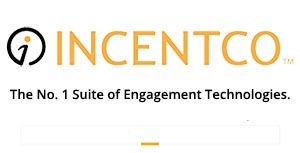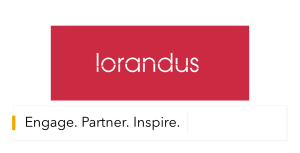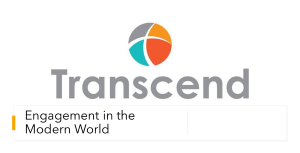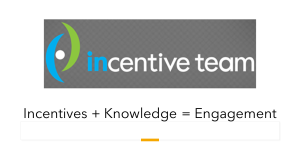The Benefits of Tangible Non-Monetary Incentives
Published by: Incentive Research Foundation
- Introduction
- Evaluability
- Separability
- Justifiability
- Social Reinforcement
- Implications
- Summary
- Dr. Scott Jeffrey
Click here to view and download a PDF version.
Introduction
There is perhaps no subject debated more frequently (or as vehemently) by incentive program practitioners and their clients than the value of tangible, non-monetary (alsoreferred to as non-cash) incentives versus cash.
Background
When a participant is deciding whether an award is “worth the effort,” the participant is considering the perceived value of earning the award — the match-up between the value of the award itself, and the effort required to earn it. Insights into this decision-making process come from expectancy theories, which hold that effort exerted in pursuit of a reward is positively related to the value of the reward offered for performance. This dynamic is known as the expected utility of the award.
In addition, several principles of social and cognitive psychology suggest that participants may perceive non-monetary incentives to be more valuable than the retail value of that award in cash. For example, acknowledgement from peers and other dynamics can extend the value of non-cash incentives over and above the cash value of the incentive. This has been referred to frequently as trophy value.
Objective Of Paper
Four psychological processes described herein influence participant perceptions of tangible non-monetary incentives, making them perceived to be of more value than cash incentives of equal market value.
Four Psychological Processes
The four psychological processes to be discussed in this paper can be categorized as items that directly affect the Perceived Value Of The Award and those that increase the Value Of Earning The Award, because the awards are earned rather than purchased.
Perceived Value of the Award
- Evaluability
- Separability
Value of Earning the Award
- Justifiability
- Social Reinforcement
In the following document, the perceived value of a non-cash award— influenced by the processes of Evaluability and Separability — will be explored first. Following that overview, this paper will provide an overview of how tangible, non-cash incentives can increase motivation because they are earned rather than purchased, via the psychological processes of Justifiability and Social Reinforcement.
Evaluability
When a non-cash incentive comes in the form of a travel award, considered a pleasurable experience, an interesting dynamic occurs.
Affective Reactions Drive Perceived Value
That dynamic is known as an affective reaction to the incentive. As an example, when you think about a trip to Hawaii, affective attributes probably come first to mind - things like good weather, fine beaches, and great dining.
Research has shown that people use vivid items (such as the good weather, etc.) more frequently than mundane items (such as trip preparations, finding a sitter, stopping the mail, etc.) to form attitudes. Because attaching a monetary value to non-cash incentives is difficult, the participant’s affective reaction to the award substitutes for its predicted utility.
Value Ambiguity Increases Value Perceptions
Such affective evaluations drive participant perceptions regarding award value as well; in fact, they tend to increase value beyond the actual. This is because affective evaluations tend to have ambiguity in value, allowing participants to cognitively alter the predicted utility of the award . Given that tangible, non-cash incentives are more difficult to “put a price on,” they have greater ambiguity and thus can be ascribed a higher value than cash, which has an established value (and therefore no ambiguity).
In Conclusion...
Non-Cash Incentives Have Evaluability, Meaning They...
- Capitalize on affective reactions to the award.
- Increase the utility value of the award and its significance
Separability
People mentally segregate some sources and uses of funds, and aggregate others. A type of mental accounting process occurs.
For example, most people mentally separate investment income and home (real estate) appreciation from salary; however, because salary and a cash bonus are both earned as part of the job, they are likely to be mentally combined with the rest of the participant’s employment income.
Cash Awards Not As “Separable” as Non-Cash Incentives
Cash bonuses lack separability, because they go into a base salary mental account. Thus, the value of the cash bonus as an award for performance “above and beyond” does not stand out anymore. Companies can counter this through a ceremony and the like (to commemorate the performance); however, participants often continue to view this money as an increase in total compensation, because it is cognitively aggregated with salary.
Non-cash incentives are usually consumed less frequently; they are separated into smaller, more specific mental accounts (e.g., Travel, Entertainment), etc. In these cases, the award has separability — it is not aggregated with other compensation.
In Conclusion...
Non-Cash Incentives Have Separability, Meaning Individuals...
- Separate the award from other compensation.
- Make the award unique, the performance “stand out”.
Justifiability
Many non-cash incentive awards are viewed as luxuries that participants normally cannot justify purchasing. If a participant values it highly (but would not purchase it) then the opportunity to earn it as reward for hard work does not violate the participant’s standards of justification.
Earning The Incentive Eliminates The Need To Justify Its Purchase
For example, a salesperson might never go on an expensive and “frivolous” trip to Hawaii; however, if the trip is earned for hard work and the participant must “use it or lose it,” there is no need to justify taking it. Hard work thus becomes an attractive way to acquire something that was not justifiable otherwise. The result: Earning the non-cash incentive carries more value than earning the market value of the incentive in cash.
In addition, cognitive dissonance research suggests that if a participant is working hard to achieve an award, the participant will try to mentally justify that the award is worth the effort. This brings the participant’s beliefs in line with their actions and can increase the perceived value of a tangible non-monetary award. Put another way, the harder a participant works to achieve an award, the more valuable the award becomes. This in turn leads to more effort.
In Conclusion...
Non-Cash Incentives Have Justifiability, Meaning They ...
- Allow the participant to justify the consumption of the award.
- Motivate the participant to achieve and be awarded with something more difficult to obtain through purchase.
Social Reinforcement
One of the most important rewards for a job well done is acknowledgement from one’s peers, supervisors, family, and friends. This social reinforcement comes from others knowing about the good performance.
Acknowledgement Increases Social Utility, Increasing Value
Non-cash incentives may be more effective than cash awards in this regard, because the participant doesn’t need to advertise earning them. For example, a friend or a colleague might ask, “So Bill, how are those golf clubs you earned from the firm?” This is a socially acceptable question. On the other hand, it is less socially acceptable to say, “So Bill, how’s the $1,000 you earned from the firm?”
Non-Cash Incentives More Socially Acceptable To Acknowledge
Most people are uncomfortable bragging about cash, but enjoy talking about their new golf clubs or trip. With tangible non-cash incentives being visible and socially acceptable to praise, question, or bring up, there is no need to go out of one’s way to call attention to them. By providing a better means to indirectly call attention to the award and what was accomplished to earn it, the value of earning a non-cash incentive is enhanced relative to the cash value of the incentive.
Non-Cash Incentives Have Trophy Value
Non-cash incentives like a big screen television will serve as a reminder to the participant about his or her performance (and the firm) every time it is watched. Vacation travel provides memories, pictures, etc. Cash awards can do this somewhat, but only when a certificate, plaque, etc., is provided as a physical marker. In the case of a non-cash incentive, the award itself is the physical marker.
The utility of earning a non-cash incentive is enhanced by the visibility of the award and the absence of social norms against discussing them.
Cash Awards Are Less Likely To Be Tied To The Company That Provided Them
When a cash award is provided, it becomes the participant’s — anything purchased with it is something the participant chose to purchase rather than something the firm awarded to the participant. Family, friends, and colleagues will also be more likely to view what the participant purchased as something the participant bought rather than something that was awarded for performance. This makes the link between the company and the award weaker, diminishing the likelihood that good performance (or the company that awarded it) will be discussed. This is less likely to occur with tangible non-cash awards.
In Conclusion...
Non-Cash Incentives Offer Social Reinforcement, Meaning They...
- Increase the value of non-cash incentives through trophy value
- Acknowledge the link between the award and the company
Implications
What do the four psychological processes mean to incentive program practitioners? Here are some basic guidelines for consideration.
1. Make Your Awards Truly Special
If the participant is less likely to purchase the item (because he or she can’t justify it) then making the award truly special will increase the value of earning the award, and increase effort to receive it.
2. Use Infrequently Purchased Items Or Services
Items or services that participants would likely not purchase on their own are more likely to attract the attention of colleagues, increasing the trophy value of the award.
3. Maximize (and Capitalize Upon) Social Reinforcement Qualities
To maximize social reinforcement qualities, encourage participants to think about the admiration that will result in achieving the award (and by proxy) the performance that led to it. This will make earning the incentive more valuable and increase effort.
4. Communicate Awards As “Splurge” Items
Imply within incentive program communications that the award is truly something the participant would only purchase as a luxury or personal treat. This will add to the award’s trophy value and increase its overall power as a motivational tool.
5. Vary Award Types To Meet Diverse Needs
For each performance level, when participants can choose from a variety of awards, utility value perceptions are improved. Maximize utility value by offering incentives desired by people having diverse tastes.
6. Minimize The Potential For “Loss Aversion”
Switching from a cash incentive program to a non-cash incentive program can result in loss aversion - the perception that losing something hurts more than receiving the same thing of equal value. Put another way, if a cash incentive program is eliminated, any tangible, non-monetary incentive programs implemented in its place should be of greater perceived value. Because of this, it may be better to use a non-cash incentive in a newer program rather than replace a cash program with a noncash program.
7. Consider Other Potential Benefits
A firm may receive additional benefits from non-cash incentives. For example:
- Vacation travel might pay back in improved productivity for rested participants.
- Providing non-monetary incentives can help attract a better group of participants if such awards attract participants that are a better fit for the firm. For example, awarding something like a hotel stay attracts people that appreciate hotel stays and would be motivated by them.
Summary
This paper suggests how the following four psychological processes can increase the perceived value of tangible non-monetary incentive awards over and above cash-based awards having the same market value.
Evaluability
- Non-cash awards are more difficult to attach a monetary value to.
- Therefore, when participants focus their thoughts on the positive attributes associated with the award, it is ascribed a higher value.
Separability
- Cash incentives tend to be aggregated with overall compensation.
- Non-cash incentives tend to be kept separate from compensation, thus standing out as rewards for performance.
Justifiability
- When a non-cash award is something that a participant would not purchase with cash on his or her own, the participant can justify the award.
- Being able to justify the award means it has greater power to be motivational.
Social Reinforcement
- Non-cash incentives have trophy value and are more likely to be acknowledged than would be the case if the award were in cash.
- There are social taboos associated with discussing cash.
- Thus, cash lacks the trophy value and social reinforcement attributes which increase the perceived value of the award over cash.
The editors wish to thank Scott Jeffrey for his tireless efforts in providing the hypotheses and secondary research set forth in this document and in the larger body of work from which it was taken. For reprints of this article or the full, unedited version of this report, please contact the SITE Foundation.
Dr. Scott Jeffrey
Scott Jeffrey is an assistant professor in the Department of Management Sciences at the University of Waterloo in Southwestern Ontario. He received his Ph.D. in Managerial and Organizational Behavior at the University of Chicago’s Graduate School of Business.
Dr. Jeffrey performs research on incentives and participant motivation, as well as how goals are formed and how those goals affect job performance. He also studies the cognitive and motivational processes associated with judgment and decision-making.
Dr. Jeffrey has taught Organizational Behavior, Negotiation, Human Resource Management, and Competitive Strategy. To reach Dr. Jeffrey, contact him via email at sajeffre@engmail.uwaterloo.edu.
Published by: The SITE Foundation Copyright 2003. All Rights Reserved
This paper is an edited version of a full report by the same name written by Scott Jeffrey, University of Waterloo. For copies, contact The SITE Foundation.


















